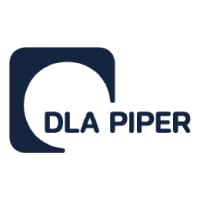

Chief legal officer | Höegh Autoliners



Sigve Reme Sand
Chief legal officer | Höegh Autoliners
Team size: 5 direct reports
What are the key projects that you have been involved in over the past 12 months?
Höegh Aurora Newbuilding Project: I am very proud to have assisted on Höegh Autoliners’ newbuilding project from commencement of contract negotiations and until delivery of the four first vessels in 2024. The delivery of the first “Aurora class” vessels marks a major milestone in the history of Höegh Autoliners, as we now operate the largest and most carbon-efficient car carriers in the industry. I would say that the trailblazing Aurora project stands out as a highlight not only in the past 12 months, but in my entire career.
Refinancing and lease financings: I have led the transaction management team involved in all of the company’s major financing agreements, including the closing of a $720m credit facility, a $200m revolving credit facility, and two sale-leaseback transactions for the newbuilds delivered in December 2024. In doing so, our company is now fully financed until 2030.
Milestone customer contracts: Over the past year, I have also assisted in the negotiations of the company’s largest customer contracts. The most significant contract was closed in December 2024, when we entered into a milestone 5-year contract with a major international car producer for transportation of a significant volume of cars in our core trade lanes.
What do you think are the most important attributes for a modern in-house counsel to possess?
I think curiosity and agility are essential attributes for modern in-house counsel. Lawyers who understand the intricacies of the business are better positioned to guide their companies through complex decisions. The privilege of working in-house is that you get a unique insight into your client’s business operations compared to external lawyers. Staying curious and proactively building a network within the organisation is crucial to leveraging this position effectively. In the shipping industry, this means stepping out of the office to visit vessels and ports, engaging with the bunkers team and cargo planners, and participating in cross-departmental working groups. These activities foster a comprehensive understanding of the business and enable in-house counsel to provide more informed and strategic advice.
Additionally, a strong commercial intuition is important for modern in-house counsel. While in-house lawyers have specific obligations and responsibilities, the overarching goal should be to contribute to the company’s strategic ambitions. This requires a commercial mindset, allowing us to align legal strategies with the company’s broader goals.
How can general counsel foster a corporate culture that supports ESG principles and compliance across all levels of the organisation?
Firstly, it is crucial that the company takes a firm and clear stance that is communicated effectively throughout the organisation. You cannot build a strong company culture without an explicit commitment and consistent tone from the top. This includes adopting and promoting an unambiguous policy for speaking up.
I also think it is important to ensure that all employees feel ownership of the company’s commitment. In Höegh Autoliners, we aim to engage the entire organisation in our ESG and compliance efforts. We arrange an annual Integrity Day at all major offices, where various ESG and compliance topics are discussed in workshops. Additionally, the legal department has appointed local Compliance Ambassadors in several locations. The Compliance Ambassadors receive in-depth training on relevant topics and serve as local compliance champions. My experience is that this approach helps mitigate the challenges of having a centralised legal and compliance function, it lowers the threshold for discussing compliance issues openly, and builds a culture of compliance throughout the organisation.